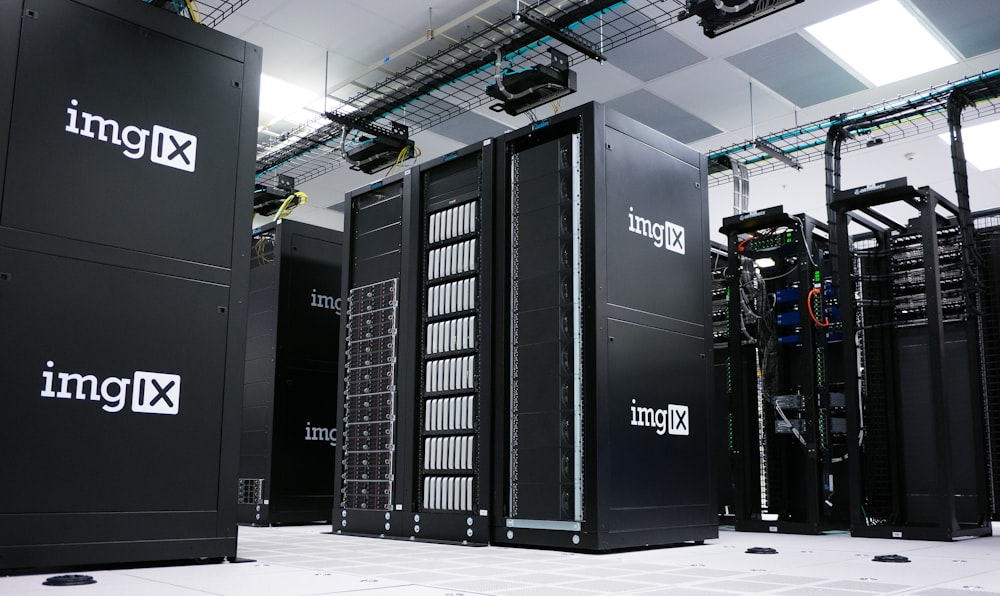What is Host Integration Server and Why it Matters for Your Business?

Photo by Taylor Vick @ unsplash
In the vast digital tapestry of modern business, the host integration server emerges as a crucial thread, weaving together disparate systems to create a cohesive picture. But what exactly is this server, and why should businesses sit up and take notice? Here unravel the story.
Bridging the Old with the New
At its essence, a host server acts as a mediator, connecting legacy systems with newer applications. It's like a translator at a global summit, ensuring that everyone understands each other, regardless of their language.
This ensures that valuable data from older systems can be seamlessly integrated into modern applications, enhancing functionality. This integration preserves the investments made in legacy systems and empowers businesses to leverage their historical data for informed decision-making and improved customer experiences.

This may interest you: 5 Changes Your Business Needs to Remain Competitive
Cost-Efficiency: Maximising Existing Investments
Replacing legacy systems can be a costly and time-consuming affair. The host server allows businesses to leverage their existing infrastructure, ensuring they get the most out of their initial investments. Think of it as up-cycling an old piece of furniture, giving it a modern twist without discarding its essence.
This cost-effective approach allows businesses to evolve without disrupting their entire IT landscape, thus optimising their budget and resources for more strategic initiatives. By extending the life of legacy systems and integrating them with contemporary technologies, businesses can achieve cost savings while staying competitive in a rapidly changing market.
Enhanced Data Accessibility and Flow
Data is the lifeblood of any business. A host server ensures data flows smoothly across various systems, making it easily accessible. It's akin to a network of highways, ensuring traffic (data) moves efficiently, reaching its destination without hitches. By facilitating the seamless exchange of information, businesses can make quicker decisions, respond to customer needs promptly, and gain a holistic view of their operations.
Explore: How Technology Is Transforming Business
This enhanced data accessibility leads to improved collaboration and informed decision-making. With data at their fingertips, teams can innovate faster, create personalised customer experiences, and identify emerging trends that drive business growth.
Micro Focus states, “Securely automate and integrate apps.”
Boosting Productivity: Streamlined Operations
With a host server in place, manual data transfers and repetitive tasks become things of the past. This reduces the risk of errors and frees up employees to focus on more strategic tasks. Imagine having a skilled assistant who handles all the mundane chores, allowing you to focus on the bigger picture.
By automating data transfers and integrating processes, the server empowers employees to be more productive and innovative, driving the business forward efficiently.

Future-Proofing: Adapting to Evolving Needs
The business landscape is ever-evolving. A host server provides the flexibility to integrate new technologies and applications as they emerge. It's like having an adaptable foundation for a building, allowing for new structures and modifications without compromising stability.
This future-proofing capability enables businesses to remain agile despite technological advancements, market shifts, and changing customer expectations. It ensures that the IT infrastructure can evolve along with the business's growth and transformation.
Read more: Benefits of Integrating Direct Cloud Connectivity Into Your Business Model
A host server is not just a piece of technology; it's a strategic tool that amplifies business operations. It plays a pivotal role in the modern business ecosystem by bridging the gap between old and new, ensuring smooth data flow, and boosting productivity.

So, as businesses chart their course in the digital age, having a host server is akin to having a reliable compass, always pointing towards efficiency and integration. After all, in the intricate ballet of business operations, every step, every move counts, and the host server ensures that every performance is nothing short of spectacular.
Be sure to check out the media below:
Leaderonomics.com is an advertisement-free website. Your continuous support and trust in us allow us to curate, deliver and upkeep the maintenance of our website. When you support us, you enable millions to continue reading for free on our website. Will you give it today? Click here to support us.
Business
Tags: Abundance Mindset, Alignment & Clarity, Business Management, Brain Bulletin, Consultant Corner
Malena Morgan is a freelance writer who offers ghostwriting, copywriting, and blogging services. She works closely with B2C and B2B businesses providing digital marketing content that gains social media attention and increases their search engine visibility.





